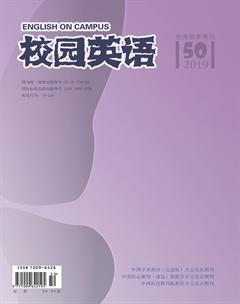Oral Grammar Correction in Second Language Instruction
【Abstract】Whether oral grammar correction practice should be adopted has been a long-debated issue in second language instruction. The paper, combined with the authors observation in teaching, aims to analyze the necessity, feasibility, and effectiveness of the oral grammar correction in language instruction and concludes that effective foreign language instruction should emphasize both fluency and accuracy by negotiating meaning and form simultaneously.
【 Key words 】Oral Grammar Correction; Second Language Instruction
【作者簡介】石素英,廣東技術師范大學。
The introduction of communicative language teaching (CLT) has brought much debate on the role of oral grammar correction in CLT classroom settings. I firmly believe that corrective feedback is essential and helpful in learning by drawing learners attention to the gap between the current interlanguage and the target language.
In the article “Whats Wrong with Oral Grammar Correction” in 1999, John Truscott called for the abandonment of oral grammar correction in CLT classroom settings by stating the challenge for teachers to determine an error and its source, and to correct it in an appropriate and consistent way. More seriously, he thinks oral grammar correction interrupts the flow of interaction.
Lyster, Lightbown and Spada rebut Truscotts dismissal of oral grammar correction in terms of its feasibility, effectiveness and necessity. They believe students expect oral grammar correction as an intrinsic part of the classroom process; and corrective feedback is not an obstacle to communication, if being integrated in ways that do not break the flow of interaction. Furthermore, they argue for the absolute necessity of oral grammar correction in helping the students discover the difference between their interlanguages and target language.
Oral grammar correction is an indispensable component in second language instruction. Academic research has already proven the difference between classroom L2 learning and natural L1 acquisition. Most EFL learners do not have sufficient exposure to the authentic English-speaking environment and it is unlikely that they could accumulate as many memory-based language chunks as the native speakers could do through the negotiation of meaning. Instead,they have to construct sentences with lexical and grammatical building blocks in accordance with their varying levels of interlanguage systems. Learners need more rule-based instruction and teachers feedback on their errors to make them aware of the gaps between their interlanguages and the target language.
Oral grammar correction is pragmatically feasible in classroom settings. Firstly, grammar instruction used to be dominant especially in EFL context, so non-native speakers could have more subtle knowledge of grammar to determine the type and source of error. Secondly, the harmful side effects are not caused by feedback itself but by the way in which the feedback is provided. Instead of abandoning the feedback, we should work on the way how feedbacks should be given. Lastly, students always notice the corrective feedback because the language form is usually in focus.
Oral grammar correction is potentially effective in classroom instruction. Getting students to notice the gap between their interlanguages and target language and then deliberately rehearse the corrected language form can transform the explicit knowledge into implicit procedural knowledge, which the learners will process automatically in the future.
Having found that the efforts to provide oral grammar correction as less as possible for the sake of fluency could lead to increasing errors and stagnancy of students interlanguage systems, teachers begin to advocate effective teaching, which emphasizes both accuracy and fluency by negotiating meaning and form simultaneously. Instead of abandoning oral grammar correction, we need to make our corrections more effective.
References:
[1]Ellis, R., Loewen, S., & Erlam, R. (2006). Implicit and explicit corrective feedback and the acquisition of L2 grammar. Studies in second Language Acquisition 28:2 339-368.
[2]Loewen, S., & Philp, J. (2006). Recasts in the adult English L2 classroom: characteristics, explicitness, and effectiveness. The Modern Language Journal, 90:4530-556.

